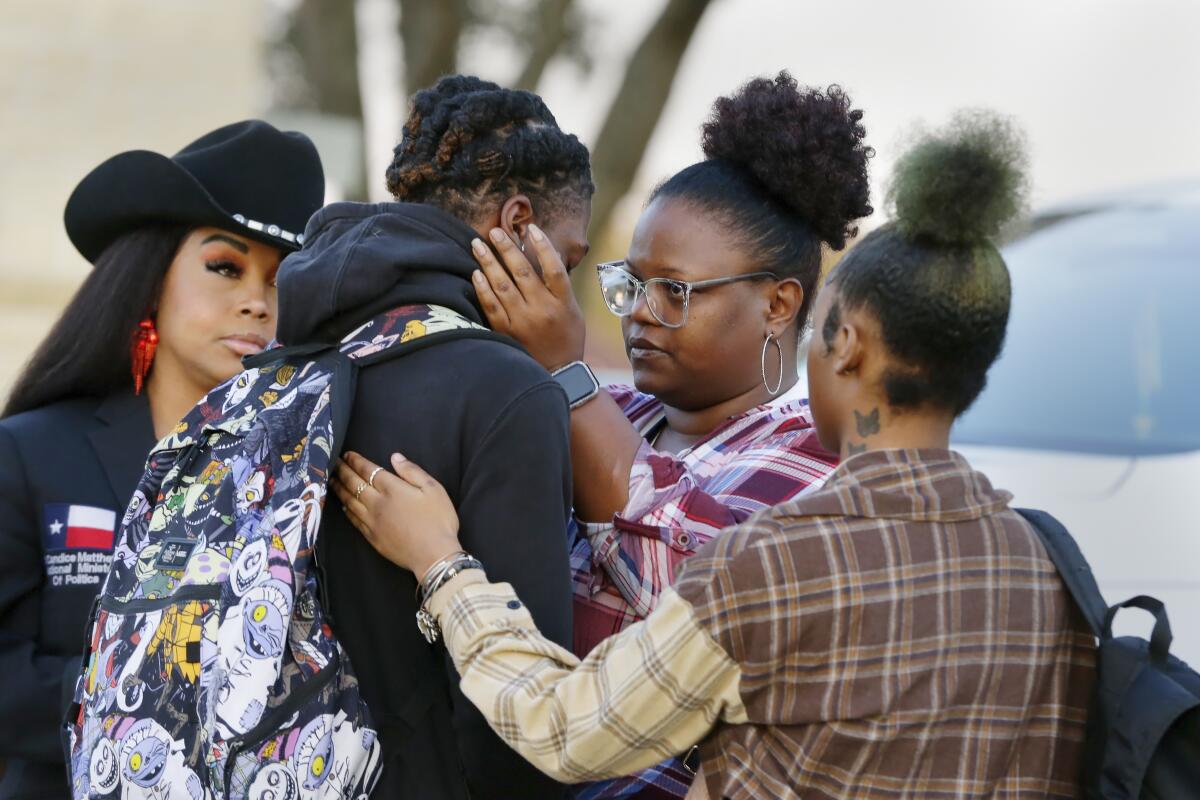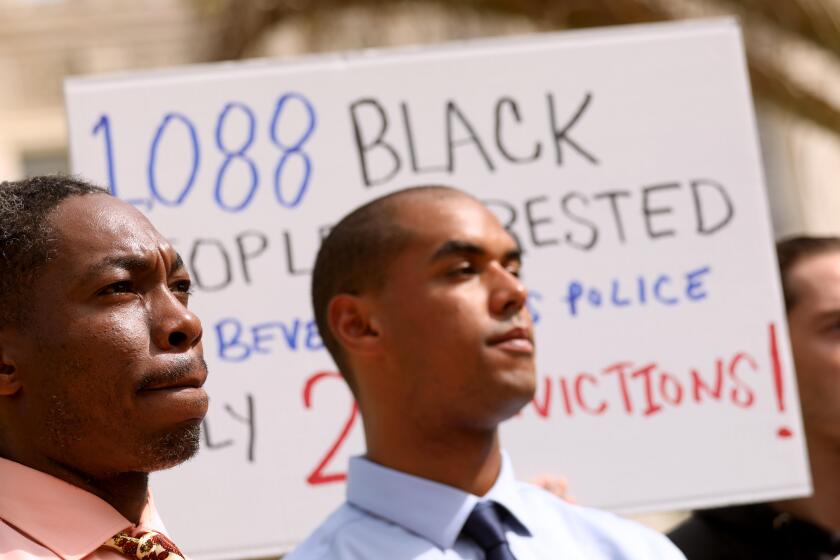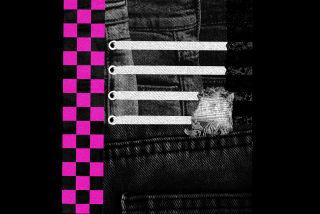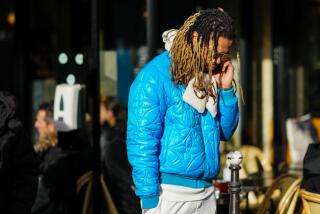Black student disciplined over hairstyle hopes to ‘start being a kid again’

- Share via
For more than a month, Darryl George, a Black high school student in Texas, spent each school day sitting by himself in punishment over his hairstyle. In the last week he was sent to a separate disciplinary program, where he’s been told he will spend several more weeks away from classmates.
In an interview with the Associated Press, George said he has felt discouraged about missing out on his classes and time with the football team.
“I feel like I’m missing my full experience of being in the classroom,” George said Thursday.
George, 18, was first pulled from the classroom at his Houston-area school in August after school officials said his locs fell below his eyebrows and ear lobes in violation of the district’s dress code. His family argues that his hairstyle does not break any rules.
By the time George is allowed to return to Barbers Hill High School in Mont Belvieu, Texas, in November, he will have missed 56 of 67 days of regular classroom instruction to start his junior year. The family has filed a federal civil rights lawsuit alleging the state failed to enforce a new law outlawing discrimination based on hairstyles.
Two former LAPD officers have offered sworn testimony to support a lawsuit against Beverly Hills Police, claiming the department racially profiled them.
But the family said George is not looking to change schools. They want to take a stand at a school that has clashed previously with other Black male students over their hairstyles.
“We have to stand, and we have to let them know that, ‘No, Darryl’s not cutting his hair. No, Darryl is not going to let this go. No, you’re not going to run Ms. George and her family out of their neighborhood,’” said Candice Matthews, a civil rights activist who is operating as a spokesperson for the family.
After George spent weeks on in-school suspension, his family received a letter from the school principal referring him to the disciplinary program for the dress code violations and other transgressions: violating the tardy policy, disrupting the in-school suspension classroom and not complying with school directives.
Barbers Hill Supt. Greg Poole said Friday in an email to the AP that officials cannot disclose the infractions that led to George’s placement, but it was not because of his hair.
George’s mother, Darresha George, said he once used a profanity to express frustration with the in-school suspension. The family said George also has had two tardy violations. But they see the refusal to cut his hair as the root of the issue.
“They are retaliating and that’s all that this is,” said Allie Booker, the family’s attorney.
George on Thursday attended his first day at the disciplinary school, where he sits in a cubicle and does schoolwork. He is allowed breaks but must stay inside the room. He is able to interact with teachers in the program, but he feels like he’s falling behind.
“I’m just not learning what they’re trying to teach me,” he said.
School systems in Texas have broad discretion over which offenses can result in students being sent to disciplinary alternative education programs, said Renuka Rege of Texas Appleseed, a social justice advocacy organization. But she said it would be unusual for a student to be transferred over a dress code violation.
“If a district wants to be really, really harsh, then they can lay that out in their code of conduct,” Rege said. “There’s a lot of districts here in Texas that still very much have a zero-tolerance mind-set.”
Dress code and hair violations disproportionately affect students of color, said Ashley Sawyer, senior staff attorney at the Advancement Project, a civil rights advocacy organization. She said students are pressured to conform to standards that may not factor in their culture and heritage, such as wearing natural hair.
George’s family has filed two religious exemptions for his hair. One was denied and they are awaiting a response to their second request, Booker said.
Men in the family going back generations have had locs. The hairstyle has cultural and religious importance, Darresha George said.
She said her son’s discipline is not just affecting him at school, but behind closed doors as well.
“Nobody can see the pain. Nobody can see the hurt. Nobody can see the tears. I have to see this. I have to see the way he gets up in the morning, the way he doesn’t want to endure the day. It weighs on me as his mother because I have to see my child go through this,” she said through tears.
George said he hopes to return to how things were.
“I hope I can start being a kid again, start living my life, start playing football again and enjoy my year, my last few years in high school,” he said.
The Associated Press education team receives support from the Carnegie Corporation of New York. The AP is solely responsible for all content.
More to Read
Sign up for Essential California
The most important California stories and recommendations in your inbox every morning.
You may occasionally receive promotional content from the Los Angeles Times.











